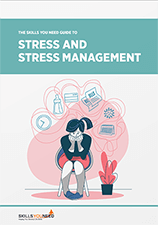Top Burnout Prevention Strategies for Nurses
See also: Dealing with Stress - Top TipsBurnout can happen in any career, but nurses are especially vulnerable. Recent data indicates that up to 84% of nurses feel burned out, a figure which is well above average compared to other jobs. Why is this happening? Well, it’s caused by several different factors, which are explored below.
The elevated burnout rate among nurses has been an issue for years, and the American Nurses Association (ANA) is working to reverse the trend. They partnered with SE Healthcare to spearhead the Burnout Prevention Enrichment Center, which is a free platform designed to prevent career burnout among nurses and other medical professionals.
The platform takes multiple angles for preventing burnout; nurses can work on improving their own well-being, or take a nursing CEU course to keep their licenses current. There are also informational articles on topics such as “How to Reach Out to a Colleague in Distress” and “Building a Better Day Off”.
With the issue of nurse burnout as pervasive as it is, people are wondering what the best strategy could be. Should we be trying to improve the resilience of medical professionals, or should we be addressing issues in the workplace that are contributing to their burnout? At this point, most solutions lean towards the first option. Even though they don’t usually address the root causes of burnout, they can still be effective in reducing it. Let’s take a look at the details.

First of all, why is burnout so common among nurses?
Unfortunately, the nursing profession often creates a perfect storm of circumstances that contribute to a high instance of burnout. Here are the most common contributing factors:
Long hours – In many parts of the country there simply aren’t enough nurses to go around. With too many patients and not enough nurses, this leads to intense hours and not enough opportunities for time off.
Emotional strain – Nurses are often naturally compassionate people, and it can take quite a toll when patients don’t end up with positive outcomes. Nurses who work in ICUs or emergency rooms are especially prone to this.
Inadequate support – Doctor’s offices, hospitals, and similar establishments aren’t immune to toxicity in the workplace, and this can contribute significantly to a nurse’s burnout. If there’s a lot of conflict, lack of cooperation, or bullying, they could start to feel cynical and frustrated – feelings that often lead directly to burnout.
Insufficient sleep – Physical exhaustion is a major component of burnout, and with the long hours that are often required by their profession, nurses often don’t get enough sleep.
Stressful environment – If nurses have to witness high rates of mortality, traumatic injuries, or ethically doubtful situations, this leads to elevated stress levels, which obviously can lead to burnout.
What are some practical steps for nurses to prevent or lessen burnout?
Whether a nurse is on the road to getting burned out, or they’re already there, they don’t have to just let it happen. There are some proven strategies that any nurse can implement in order to alleviate their burnout.
Attending therapy or counseling programs – Many medical institutions offer some type of therapeutic or counseling service for their employees, which can be instrumental in relieving the consequences of burnout. If a nurse isn’t sure where to start, they can get more information from the human resources department on individual/group therapy, employee assistance programs, or whatever else is available. They could also find a therapist outside of work, although they may have to pay for the service themselves.
Paying attention to their mental and physical health – Working an intense job can take a huge toll both mentally and physically; if nurses push through every period of exhaustion or sickness, they’ll just wear themselves out. Calling in sick is generally reserved for serious or contagious illnesses, but experts are saying that mental health is a valid reason to call in sick as well.
Another spin on this strategy is to take regular breaks at work to focus on themselves. This doesn’t mean checking Instagram while snacking on some Oreos; it means getting some fresh air, taking a short walk, and listening to some music to get motivated.
-
Getting enough sleep – It’s one thing to say that sleep is important; it’s another thing to actually prioritize it. Physical exhaustion can get to the point where it simply can’t be ignored anymore, and that’s when nurses have a much harder time coping with the demands of their jobs. Even if it means rearranging significant parts of their schedules, eight hours of sleep minimum is essential for improving alertness, stamina, motivation, concentration, and mood. The longer a nurse’s shift, the more important this is.
Maintaining a healthy work/life balance – With all the stress, frustration, and grief that a nurse may feel every day at work, it’s easy to inadvertently bring that home with them. When spending time with family and friends, they should try to stay in the present and appreciate what life is giving to them in the moment, rather than dwelling on circumstances that they can’t change.
Time off can quickly fill up with to-do lists and social obligations, but nurses should also prioritize themselves. If they can regularly set aside time to relax and recharge, they can return to work feeling ready to take on whatever challenges their jobs have to offer.
Developing strong relationships – One of the risk factors for burnout is a feeling of isolation; the best way to prevent this is by building interpersonal networks at work and at home. Nurses need to be able to talk about emotionally distressing situations, the struggles of balancing work and personal matters, and whatever else is on their minds. Even if they don’t have anything in particular to discuss, it’s vital for them to know that someone has their back.
Further Reading from Skills You Need
The Skills You Need Guide to Stress and Stress Management
Understand and Manage Stress in Your Life
Learn more about the nature of stress and how you can effectively cope with stress at work, at home and in life generally. The Skills You Need Guide to Stress and Stress Management eBook covers all you need to know to help you through those stressful times and become more resilient.
The takeaway
The issue of burnout among nurses is complex, but there are plenty of ways to address it, if not actually prevent it. With improved awareness and increased availability of practical resources, nurses won’t have to be so vulnerable to getting burned out.
About the Author
Lauren is a Texas native who has appreciated the craft of good writing from a young age. If she isn’t working on her latest writing project, she’ll probably be busy sewing, trying a new cheesemaking technique, or fermenting something tasty.


